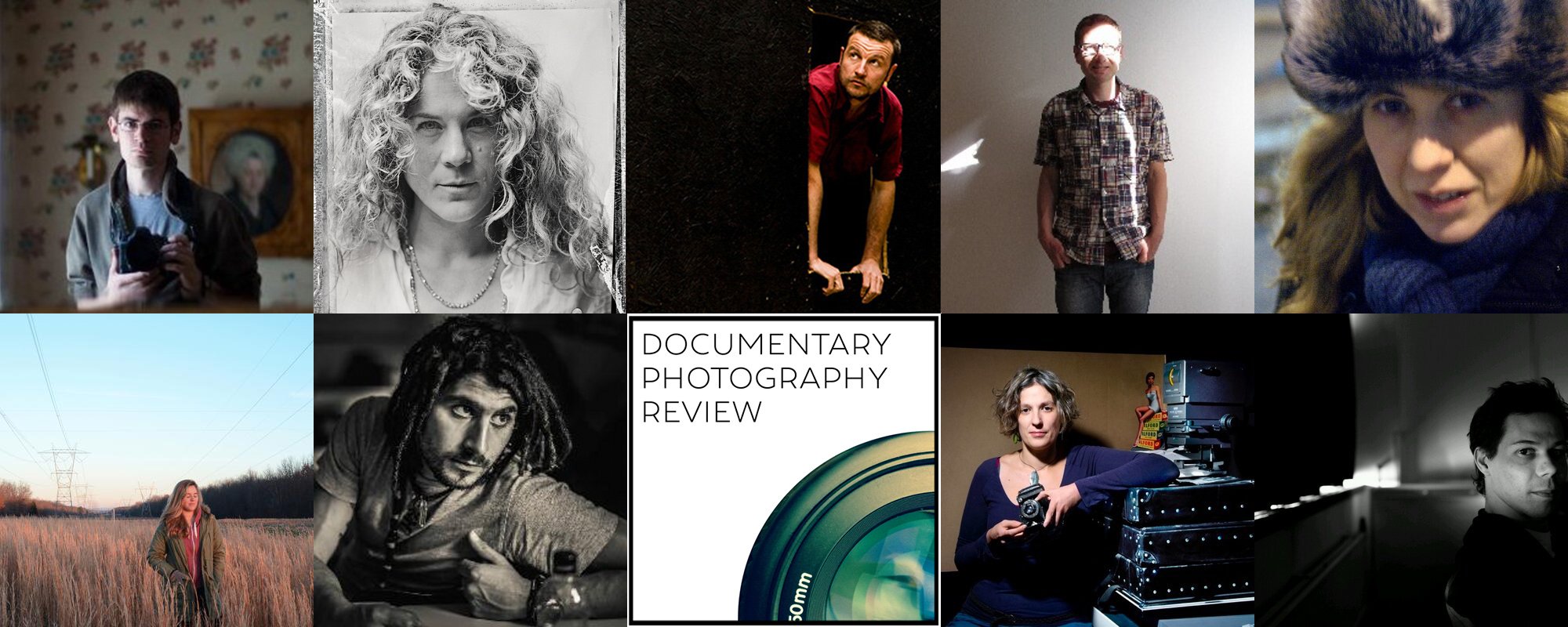
03 Aug 9 photographers share the things they wished they had known at the start of their photographic career
[vc_row css_animation=”” row_type=”row” use_row_as_full_screen_section=”no” type=”grid” angled_section=”no” text_align=”left” background_image_as_pattern=”without_pattern” z_index=””][vc_column width=”1/6″][/vc_column][vc_column width=”2/3″][vc_column_text]
I asked some of the photographers who have been interviewed on the Documentary Photography Review podcast to share their thoughts and experiences in response to a series of 12 questions. In this article I ask:
What 3 things do you wish you had known at the start of your photographic career, that would have helped you get to where you are now quicker?
[vc_separator type=’normal’ position=’center’ color=” thickness=” up=’20’ down=’20’]
Lewis Bush
It’s fine to have your own opinions.
Don’t worry about the gatekeepers (they won’t worry about you)
Some branches of Poundland sell colour film.
[ts_fab authorid=”13″ tabs=”bio,twitter,custom”]
[vc_separator type=’normal’ position=’center’ color=” thickness=” up=” down=”]
Cinzia D’Ambrosi
Hard to pin down three things. Thinking back at the start of my photographic career I recall how hard I was finding it to link the practice with the business side of things. I was not confident enough to approach people in the business and show my work. If I could go back I would tell myself to be more confident and try to combine my passion with earning a living or close to it.
Another thing that comes to my mind is research. To research deeply on a given topic without losing sight of the elements that one is interested in.
Thirdly, at the start of my career I was working too much on my own and did not build enough relationships with other photographers. Today I would recommend peer support and networks, which I repute valuable.
[ts_fab authorid=”92″ tabs=”bio,twitter,custom”]
[vc_separator type=’normal’ position=’center’ color=” thickness=” up=” down=”]
Jonathan Goldberg
Join a photographic community.
Spend more time on personal work.
Seek feedback.
[ts_fab authorid=”285″ tabs=”bio,twitter,custom”]
[vc_separator type=’normal’ position=’center’ color=” thickness=” up=” down=”]
Ingrid Guyon
The ethics of photography.
Understand the industry better.
Having a good website.
[ts_fab authorid=”287″ tabs=”bio,twitter,custom”]
[vc_separator type=’normal’ position=’center’ color=” thickness=” up=” down=”]
Eduardo Leal
First, be patient, there is no quick rise to success.
Second, think carefully in what you are doing, the photo to engage the audience and tell a story has to have a meaning.
Third, look for the right light, it makes a huge difference between a normal photo and an incredible one, after all photography is about painting with the light.
[ts_fab authorid=”124″ tabs=”bio,twitter,custom”]
[vc_separator type=’normal’ position=’center’ color=” thickness=” up=” down=”]
Claudia Leisinger
Not to worry about style; your individual photographic language develops while shooting photos you care about.
Follow your path much more confidently, everything will take much, much longer than you imagine.
To break down big themes, ideas and concepts: Keep it small & tell big stories.
[ts_fab authorid=”283″ tabs=”bio,twitter,custom”]
[vc_separator type=’normal’ position=’center’ color=” thickness=” up=” down=”]
Tim Mitchell
Read as much visual theory as possible.
Counteract the possible atrophy caused by reading so much theory by going out and assisting or shadowing as many different kinds of jobbing photographers as possible. You will learn something from all of them. Even if you don’t want to do what they do.
Write your own narrative. i.e. Look outwards at the world (but not too much inwards at the ‘photography world’) and tie your interests closely to your practice and create the narrative of yourself that you want to be out in the world. Not always easy or controllable but it’s fun and liberating doing it.
[ts_fab authorid=”284″ tabs=”bio,twitter,custom”]
[vc_separator type=’normal’ position=’center’ color=” thickness=” up=” down=”]
Lucy Piper
That doing a photography degree doesn’t ensure a more successful path for a photographic future. Work placements and assisting photographers is arguably a much better way to learn, if a photographer is willing to mentor you. I could’ve saved myself £25,000, but I did grow up a lot at University, so I have that to thank it for.
That ‘staff photojournalist/photography’ jobs barely exist. Newspapers and magazines mostly rely on freelancers nowadays to supply them with content. I’m not sure why though because freelancers charge more, although work is fewer and far between.
Not to diss wedding photography so soon. It requires a serious amount of skill, and pays for you to do projects in your own time.
[ts_fab authorid=”11″ tabs=”bio,twitter,custom”]
[vc_separator type=’normal’ position=’center’ color=” thickness=” up=” down=”]
Roberto Zampino
I wish I knew more about business and laws – the government can screw you if you don’t know enough about taxes and all the boring things.
[ts_fab authorid=”286″ tabs=”bio,twitter,custom”][/vc_column_text][/vc_column][vc_column width=”1/6″][/vc_column][/vc_row]


